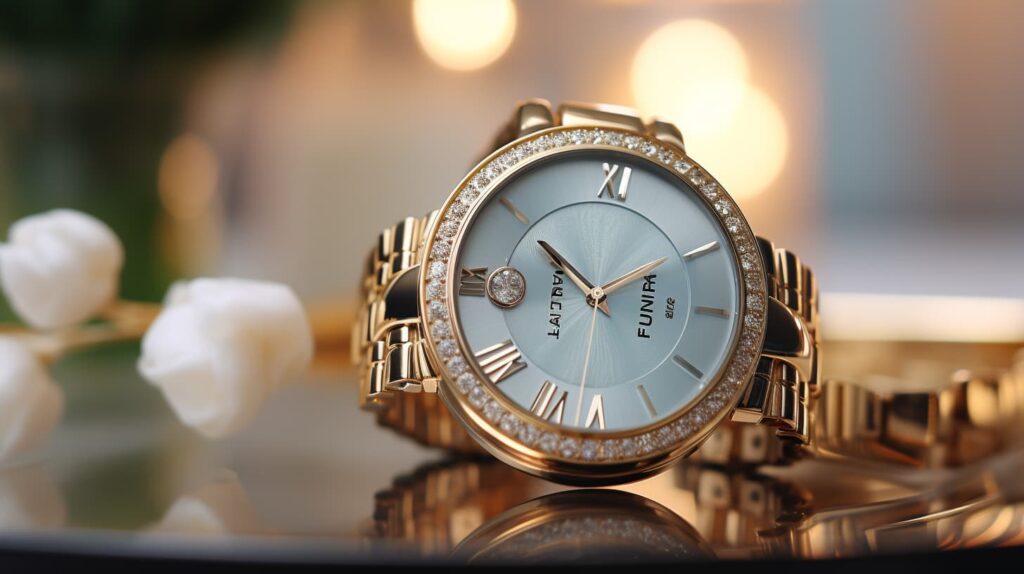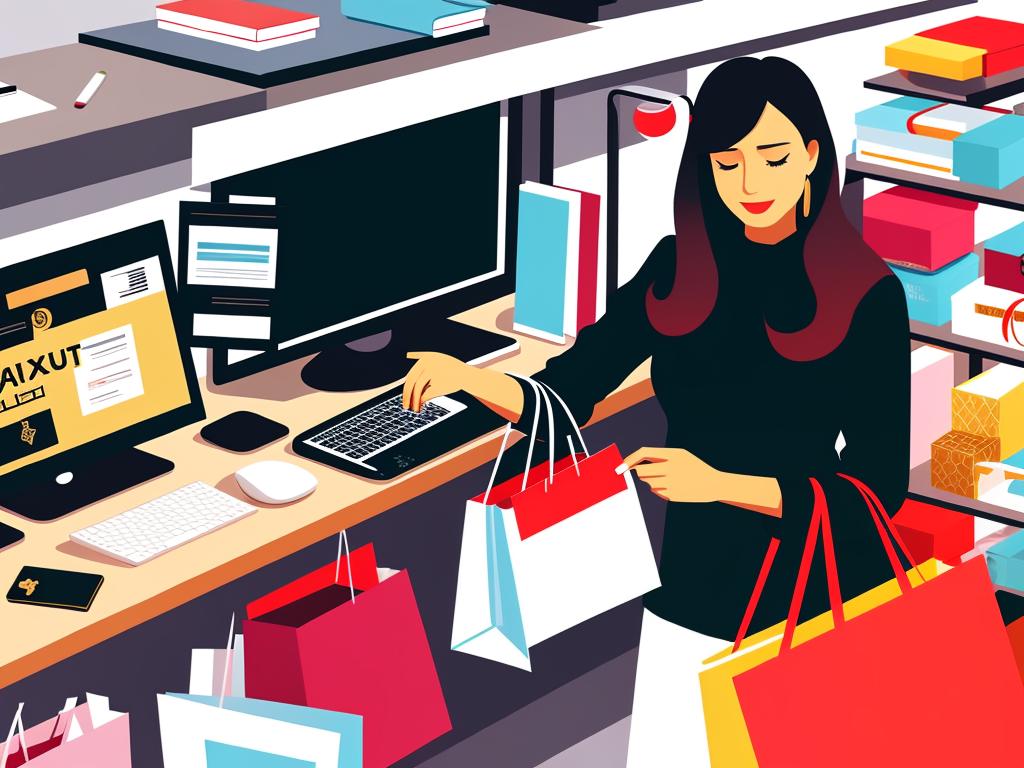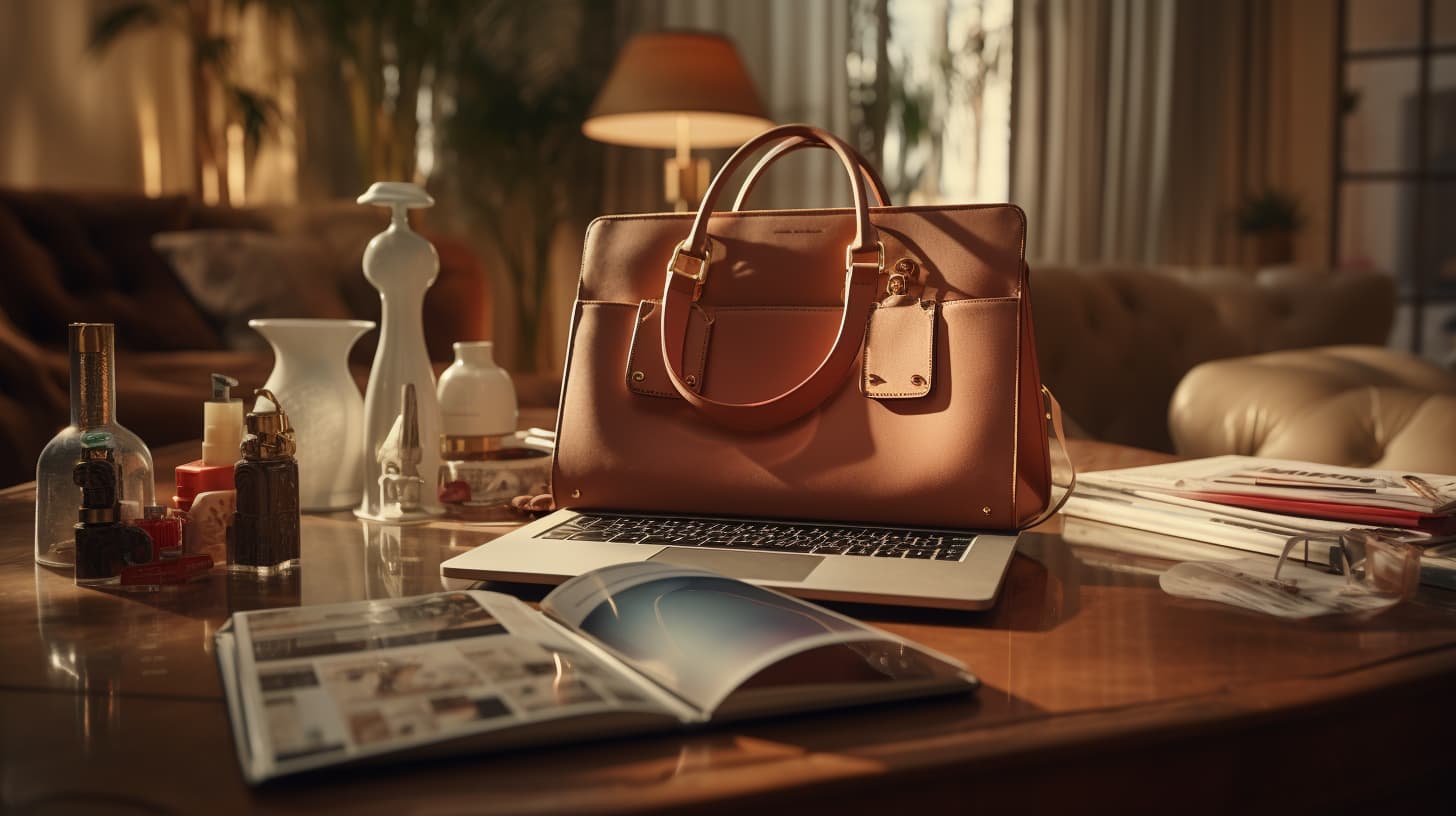As we navigate through the digital era, online shopping has become an integral part of our daily lives. Yet, when we mention online shopping, it’s not just buying groceries or electronic goods; luxury online shopping and the luxury market also has its robust presence online.
Despite its traditionalist image, the luxury sector has embraced e-commerce and online stores, carving out a high-end niche with unique characteristics that set it apart from conventional online retailing. Whether it’s for the allure of exclusive brands, personalized shopping experiences, or the convenience of shopping from home, consumers are increasingly drawn to luxury online shopping.
This guide takes a deep dive into the world of luxury e-commerce, exploring its market dynamics, the exclusive buying experience it offers, the challenges it faces, and the trends shaping its future.
Understanding the Luxury Market Online
Understanding the Luxury Market Online: An Introduction
The luxury market, especially within the realm of e-commerce, is a complex industry that is ever evolving and steadily growing. This multi billion-dollar sector sets itself apart from traditional retail in multiple ways, boasting unique characteristics and catering to a specific demographic.
Market Size and Growth
In 2021, the global luxury market was valued at approximately 330.14 billion euros. The luxury e-commerce sector alone has witnessed rapid growth, and this upward trajectory seems to be both unstoppable and lucrative.
It’s estimated that by 2025, the market is expected to reach 500 billion euros. This continuous growth is driven, in part, by socioeconomic progress, the expansion of luxury brands into different product categories, and the increasing prevalence and sophistication of e-commerce platforms.
There are also new buyer promotions available such as buy now pay later luxury watches that offer consumers a new way to finance their purchases. This is opening new doors and revenue into the luxury online shopping world.
Distinct Characteristic in Comparison to the Traditional Retail Market
Unlike traditional retail, luxury e-commerce revolves around selling high-end goods that are promoted by exquisite craftsmanship and high-quality materials. Here, exclusivity, premium pricing, and upscale branding differentiate the luxury market from conventional retail platforms.

High-end product photos, detailed product descriptions, and superior digital experiences contribute to the opulent shopping experience expected of luxury e-commerce.
Major Brands and Players in the market
Numerous brands and platforms have capitalized on the demand for online luxury shopping. Companies like Farfetch and Net-a-Porter offer a curated online shopping experience, selling products from designer brands like Gucci, Prada, and Louis Vuitton. Traditional luxury brands have also transitioned into e-commerce, such as Burberry and Tiffany & Co.
They have upped the ante by providing an immersive, branded shopping experience that reflects their luxury retail spaces.
Consumer Attraction to Online Luxury Shopping
Consumers are drawn to online luxury shopping for several reasons. For one, it provides convenience and global accessibility. Shoppers can browse and purchase high-end goods from the comfort of their own home, regardless of their location. Online platforms also offer a broader product range and availability compared to physical luxury stores.
Additionally, personalized customer service, quicker and more flexible delivery options, and the opportunity to compare prices across different platforms make online luxury shopping an attractive choice. There are platforms such as online jewelry shops that allow consumers to compare pricing.
Furthermore, it allows consumers to partake in luxury consumption as an aspirational lifestyle, making luxury accessible and attainable.
Lastly, the rise of online luxury resale platforms, like The RealReal and Vestiaire Collective, have played a significant role in attracting consumers. This sustainable approach to luxury shopping allows consumers to purchase pre-loved luxury items at a lower price point, making luxury more inclusive.
To fully grasp the complexity and allure of luxury online shopping, one must examine its distinct characteristics, the pivotal players navigating this space, and the key factors drawing consumers towards this realm.
Indeed, the online luxury market is a dynamic and constantly evolving sphere influenced by technological evolution and shifts in consumer demands. Obtaining a clear understanding is valuable for anyone intrigued by the opulent world of high-end online retail.

The Luxury Online Buying Experience
A Snapshot of the High-End Online Shopping Experience
Online shopping has forever transformed the way people shop, offering a vast array of options at one’s fingertips, from the comfort of home, the office, or on the go. Despite this, luxury online shopping has established its own niche within this expansive market.
Premium retailers and brands have seen the potential in offering a sophisticated, bespoke experience that effortlessly extends their brick-and-mortar essence into the digital realm. Luxury online shopping’s competitive advantages include exceptional customer service, product customization possibilities, and an ingrained sense of exclusivity.
These high-end stores offer tailored services for buyers. There are luxury online stores that accept cash app for payment as convenience for some clients.
Exclusive Customer Service
In ordinary e-commerce, customer service usually involves answering queries promptly and resolving issues efficiently. Luxury brands, however, take customer service a notch higher. Luxury lines typically offer personalized assistance, such as personal shoppers or stylists, who can consult on sizing, fit and style digitally.
Some luxe platforms even provide 24/7 customer service, dispelling any concerns on different time zones or availability. Often, this service extends beyond the sale, providing follow-up care that continues the luxury experience.
Personalization and Customization
Luxury online shopping takes customization and personalization to new levels. Recognizing that the luxury customer appreciates products and experiences that are unique to them, many luxury e-tailers offer customization options for their goods.
From embossing initials on leather goods to creating a unique blend of high-end perfumes, customization creates a personal connection between the consumer and the product. Additionally, the browsing experience itself is often personalized, with AI technology analyzing users’ preferences and behavior to suggest new products or styles.
Exclusivity and Scarcity
Luxury online shopping capitalizes on the feeling of exclusivity. High-end online retailers often stock limited quantities of each item, conveying a sense of scarcity and unique value. Special editions, capsule collections, and exclusive pre-orders are other ways luxury online retailers foster this feeling of exclusivity.
The Escalating Perception of Luxury
Fundamentally, what separates luxury online shopping from regular online shopping is the perception of luxury. Luxury is not only about the quality or the price of the item but about the whole shopping experience.
From the moment a shopper enters the online store, every logo, product image, font, and word is carefully crafted to project a sense of sophistication, elegance and rarity that commensurate with the brand’s reputation.
Luxury Online Shopping and Economic Perspective
The future is looking particularly strong for luxury online shopping as a rising number of consumers are electing to make their high-end purchases digitally. Current research indicates that even in times of economic uncertainty, the demand for luxury goods tends to remain reliable.
This is primarily due to luxury buyers being less influenced by economic turbulence compared to the average consumer. While there are buy now pay later catalogs, affluent buyers don’t need this financing option.
The blend of exceptional quality, personalized service, distinctiveness, and impeccable customer service distinguishes luxury online shopping from regular e-commerce, suggesting a positive growth trajectory and fresh opportunities within this specialized area.

Challenges in Luxury Online Shopping
Navigating Challenges in Luxury Online Shopping
Online luxury shopping has seen significant expansion in recent years, solidifying its position as an important cornerstone of the broader luxury retail sector. However, in line with any industry progression, it comes with a unique set of hurdles.
Maintaining Brand Prestige in the Face of E-commerce Proliferation
One of the most pressing challenges for luxury brands is maintaining their brand prestige in the online landscape. Brick-and-mortar luxury shopping has traditionally relied heavily on the exclusivity of the shopping experience.
However, the vastness of the internet, characterized by widespread availability and swiftness of transactions, poses a significant challenge to the exclusivity aspect. Brands have to find ways to balance the ease of online access and sales with the need to maintain a distinct brand image that suggests exclusivity and rarity.
Ensuring Quality of Products and Services
Another challenge faced by luxury online retailers is the duty of ensuring product and service quality. Luxury consumers, whether shopping in physical retail stores or online platforms, expect not only excellent product quality but also an equally impressive service experience.
However, upholding these high-quality standards in an online space can be challenging. High-definition product images and detailed descriptions can only do so much. There are difficulties with replicating the sensory experience of seeing, touching, and even smelling luxury goods that a shopper gets from a physical store.

Furthermore, customer service practices must also reflect the brand’s quality promise in delivery, packaging, and return or exchange policies.
Contending with Counterfeiting and Security Concerns
Counterfeiting is a growing menace in the luxury retail sector, and the online sphere is no exception. Online shoppers are often lured by deceptive websites and social media ads offering high-end products at significantly lower prices. These platforms sell counterfeit goods, damaging not just the consumer’s trust but also the brand’s reputation. Brands have to be vigilant about online surveillance and take strict actions against such activities.
In addition to counterfeiting, online luxury retailers have to deal with security concerns. With personal data theft becoming increasingly common, consumers are more apprehensive about sharing their information with online platforms. To counter this, luxury brands must invest in robust cybersecurity measures such as Visa provisioning services to ensure that customer data is completely secure.
Combating Challenges in Luxury Online Shopping
Despite these challenges, many luxury online retailers are finding ways to navigate the digital landscape effectively. To maintain brand prestige, brands can curate exclusive online events or collections. Utilizing technology like 360-degree viewing, virtual reality, and augmented reality can help simulate the sensory experience of an in-store visit, addressing service quality challenges.
Meanwhile, combating counterfeiting and enhancing online security require a combination of stringent monitoring, technological improvements, and legislative actions. Brands partner with tech companies to monitor their products across different online platforms and potential counterfeit selling points. They also invest in secure payment gateways such as Visa digital wallets, data encryption, and other cybersecurity measures to protect customer data.
In a nutshell, the move towards online commerce poses a unique set of obstacles for high-end retailers. But by integrating innovation and preserving their high standards, luxury brands can accomplish success on online platforms while retaining the exceptional allure expected from high-end products.

Shopping Luxury Online: Trends and Future Outlook
New Trends in Luxury Online Shopping
Online shopping for luxury brands has seen a considerable shift due to rising digital engagement, technological innovation, and increasing focus on sustainability. These factors have transformed both how consumers approach luxury shopping and how luxury brands develop their relationships with customers.
One notable change is a stronger emphasis on a digital-led strategy. More and more luxury brands are discovering the capacity of online platforms to bolster their sales and extend their reach. This trend was fast-tracked by the COVID-19 pandemic, which drove even the most traditional brands to undertake ecommerce.
Emerging technologies such as augmented reality (AR) and virtual reality (VR) have also made a significant impact on luxury shopping experience. For instance, numerous fashion labels use AR for customers to virtually try clothes or accessories, which aids them in making educated decisions.
A growing trend in this realm is brands’ digital engagement through social media. It has become standard for luxury brands to utilize social media for promotional activities, launching new lines, and even for direct selling. Also on the rise is the use of influencer promotions, signifying brands’ recognition of their strong sway on shopping behaviors.
Sustainability has further established itself as a substantial factor in luxury shopping. Today’s consumers often opt for brands that align with their own environmental concerns. As a reaction, numerous luxury brands have started offering more environmentally-friendly products, revealing the sources of their materials, and advocating their production ethics.
The Future of Luxury Online Shopping
The future of luxury online shopping will likely be driven by further integration of technology, growing demand for personalization and the ongoing commitment to sustainability.
AI and machine learning technologies are expected to become more prevalent, offering personalized shopping experiences based on consumers’ preferences, browsing history and purchasing behavior. Blockchain technology can also promote transparency by tracing products from their source to the customer, therefore helping a brand to demonstrate its commitment to sustainability.
Moreover, as the younger, more tech-savvy generation becomes the major consumer group, luxury brands will likely need to adopt new ways to engage with this audience. This includes a focus on experiences rather than products, and the adoption of a ‘physical’ approach that blends the physical and digital shopping experiences.
Notably, it is also anticipated that the focus on sustainability will continue to grow. More consumers are expected to prioritize eco-friendly and ethically-made products. In response, luxury brands are likely to incorporate even more sustainable practices in their production and supply chains.
Even making these changes there are still major advantages to online shopping for retailers than physical stores.
In conclusion, the luxury online shopping landscape is rapidly evolving, stimulated by advances in technologies, changing consumer behaviors and the escalating importance of sustainability.

As rapidly advancing technology continues to redefine the way we shop, the online luxury market remains at the forefront of this change. Driven by digital engagement, and underpinned by sustainability concerns and initiatives, this sector is poised for significant growth and transformation.
Online luxury retailers who can navigate these trends effectively, maintaining their brand prestige while delivering personalized experiences, robust security measures, and premium quality, will undeniably thrive in this digital luxury landscape. The future is indeed bright and promising for the luxury e-commerce, promising unprecedented convenience and cutting-edge sophistication in the shopping experience.



